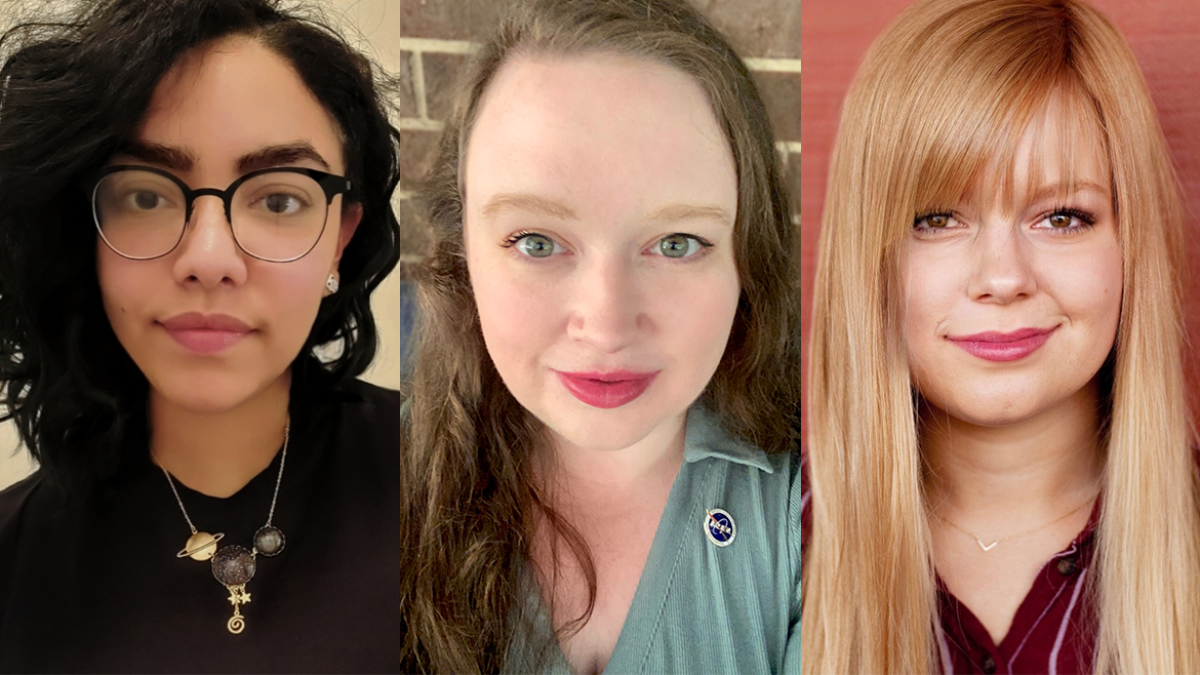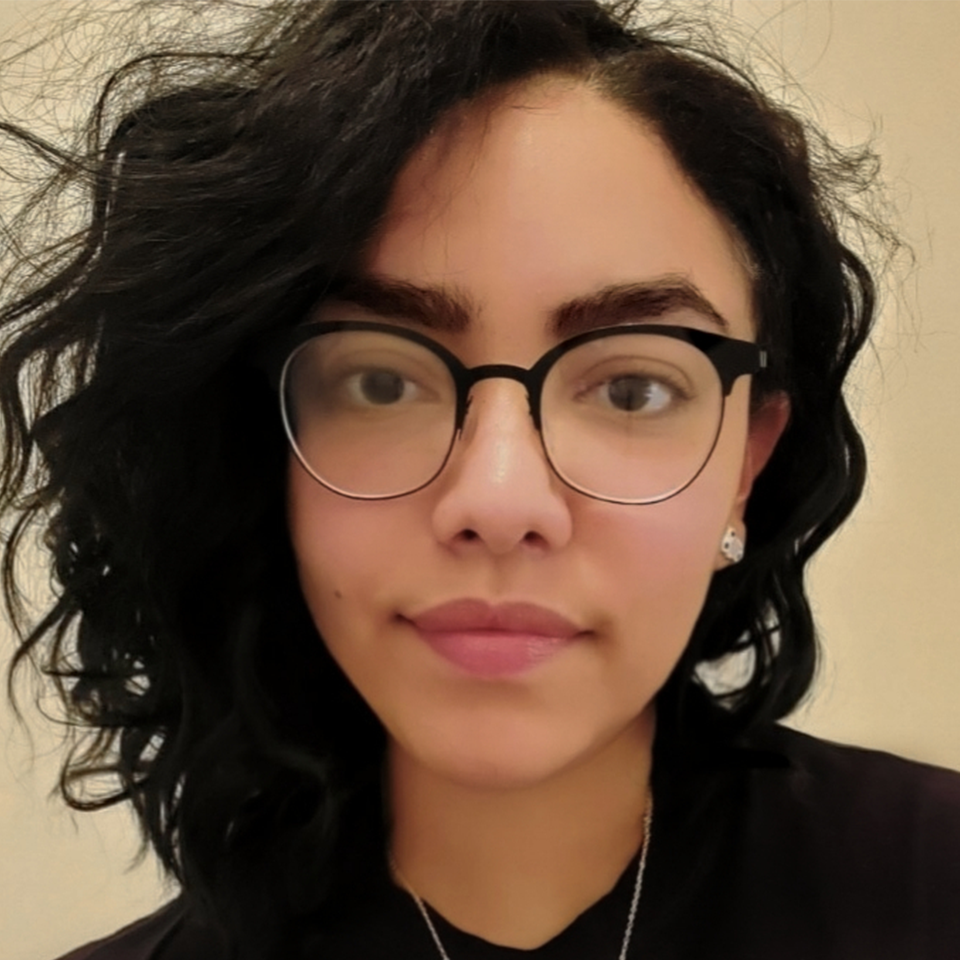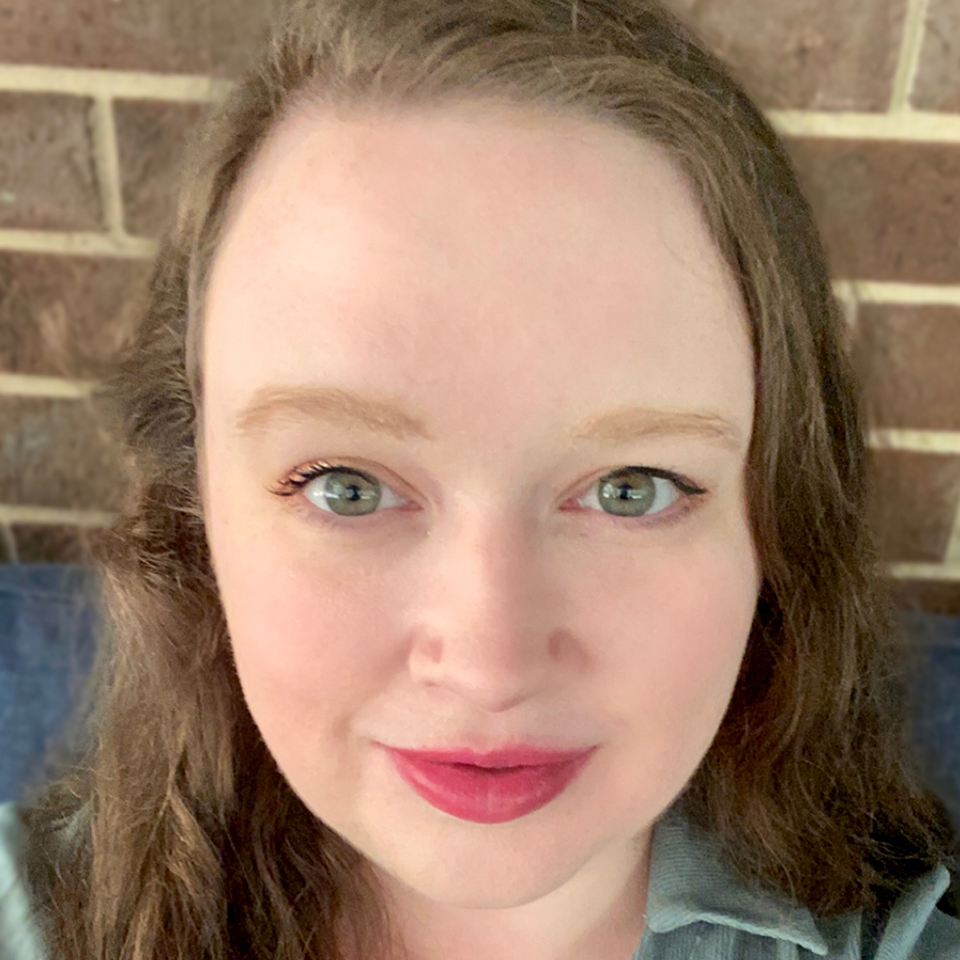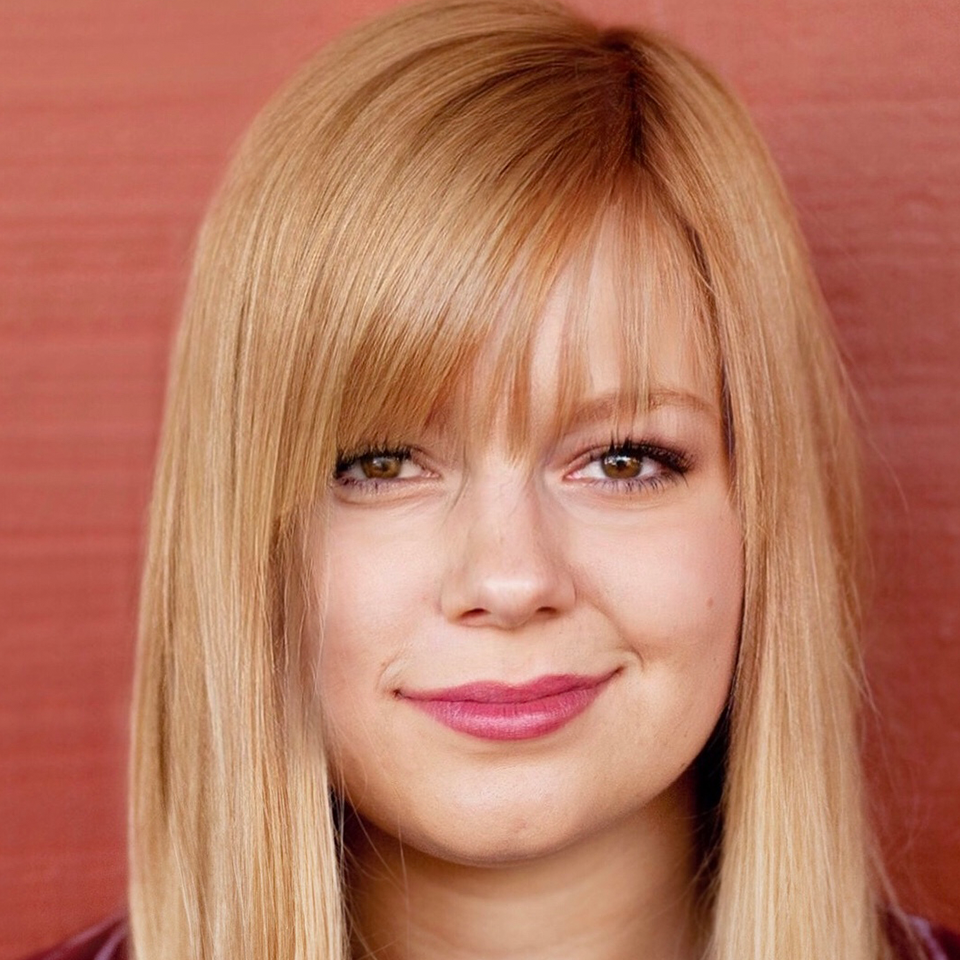3 ASU students selected for Brooke Owens Fellowship

From left to right: ASU students Rose Ferreira, Erica Kriner and Sierra Malmberg have been selected for the Brooke Owens Fellowship. Through the 12-week program, they will work as interns at leading aerospace organizations.
Many who go into aerospace engineering, planetary sciences or astronomy dream of one day working at NASA on the next big mission, exploring the future of space travel or discovering faraway planets.
Three Arizona State University students will soon have the opportunity to be involved in this kind of work as interns at leading aerospace organizations through the Brooke Owens Fellowship.
The Brooke Owens Fellowship is a nonprofit program that has recognized outstanding undergraduate women and other gender minorities with space and aviation internships since 2017.
Of the more than 1,000 students who applied to the program this year, 51 students were selected from around the country.
Through the program, the fellows are matched to internship positions at top aerospace organizations where they participate in a 12-week program and complete hands-on projects, learn new skills and make industry connections.
Meet the ASU students who were selected as part of the Brooke Owens Fellowship class of 2022:
Rose Ferreira
Major: Astronomical and planetary sciences
Ferreira is a first-generation student earning her degree through ASU Online. She was born and raised in the Dominican Republic and resides in New York. After immigrating to the U.S. as a teenager, Ferreira had trouble navigating the education system and had to teach herself English. Despite being met with doubt from others throughout her journey, she has continued to push through to pursue her passion for astronomy and planetary sciences.
“It’s been a very hard road,” she said. “I just refuse to let anyone tell me what I’m capable of. If I was going to fail, I needed to do that on my terms. I wasn’t just going to walk away because someone who doesn’t know me thinks I shouldn’t be here. I cannot say that I’m not tired, but what I’m doing is what I love, and I got myself this far. I’m not stopping.”
Ferreira was drawn to ASU because of the remote learning options available. Five years ago, she was diagnosed with cancer, which she is still currently undergoing treatment for.
“ASU is the only institution I was able to find that actually offers a wide range of options to study remotely,” she said. “The delivery of the programs is very interactive as far as I’ve been able to experience. I was able to turn in course work while waiting for my treatment at times. I know that’s not an ideal situation … but I can’t just put things off; that’s not a luxury all of us can afford. Thanks to ASU, I didn’t have to put this particular bit of my life on hold.”
Through her fellowship with the NASA Goddard Space Flight Center, Ferreira will work with the Spanish communications team, a position that is aligned with her experience as a science communicator.
“No matter what words I use, I could never explain how honored I feel to be a part of such an incredible fellowship,” she said. “This isn’t the kind of thing I grew up thinking that I could accomplish. To be here just makes me realize that I can, and I did.”
In addition to her interest in space, she is also passionate about education access and equity, as well as activism for survivors of domestic and sexual abuse and people without housing. She aspires to one day become an astronaut.
Erica Kriner
Majors: Geography, sustainability
Minor: Anthropology
Kriner is a first-generation transfer student earning her degree through ASU Online. Kriner started her college journey as an English major but discovered her true passion was geography, sustainability and anthropology. She currently resides in Arkansas.
Kriner’s grandfather inspired her love of space. In 2017, she and her grandfather traveled to Indiana to see the solar eclipse. After her grandfather passed away in 2019, she made it her mission to dedicate her life to saving the planet and bringing aerospace to a more sustainable future. She has completed a number of other internships, including with Johnson & Johnson, NASA, Seaside Sustainability and ASU.
One of the biggest challenges Kriner has had to navigate throughout her journey has been learning to coexist with her neurodivergence. With the support and resources she’s found at ASU, Kriner said she’s been able to overcome this obstacle and come out stronger than before.
“In the movie ‘Apollo 13,’ there's this quote: ‘Failure is not an option.’ I used to really love that quote until I realized that failure is inevitable,” she said. “Who we are is defined chiefly by the way we handle adversity. So when you experience failure, let it be the origin story you tell when you achieve greatness."
Through her fellowship with the NASA Goddard Space Flight Center, Kriner will work with the media and communication team. In her position, she will help to script and produce videos, write press releases and author articles for the website.
“I've always had a passion for science communication, and I've always really admired NASA's aim of making the science that they do accessible to everyone,” she said. “No matter where my career takes me in the future, making sure I'm responsibly and accurately portraying the science I'm doing is always going to be my top priority, and NASA will help me do that.”
After completing her bachelor’s degree, Kriner hopes to travel and pursue a master's degree in ecology.
Sierra Malmberg
Major: Mechanical engineering
Malmberg is a third-year transfer student who is originally from Redondo Beach, California. She first became interested in space when she was just 12 years old after watching a meteor shower with her dad. After transferring to ASU as a junior, she had to blaze a new path for herself at a new school.
“Transferring to a new school was one of the best decisions I ever made, but also one of the hardest,” she said. “It was lonely and unfamiliar, and I had to work twice as hard just to find my place. I decided to just try everything. I made myself walk up to people I didn’t know and volunteered for things I knew nothing about. I’m thankful now that I put in the work and established a community here at ASU."
Since Malmberg’s sister passed away several months ago, she’s taken time off of school and discovered a new perspective.
“I’ve learned through this crazy high of getting this fellowship and the low of losing my sister that I want to use any opportunity I get to help others along the way. People are what’s important,” she said. “Take the time to love the people around you as best you can, and use your opportunities to put yourself in a spot that will inspire you and others to go farther and farther.”
Through her fellowship with SpaceX, Malmberg will work as a Starship booster build engineering intern. In this role, she will have the opportunity to work directly with the rocket and learn how to instruct technicians on how to place parts correctly and ensure assembly and quality are up to specifications for launch.
“I’m really honored to have been selected. These days, the competition is incredibly fierce, and I know there are so many people out there who are working just as hard as I am to make it in this field,” she said. “Working at this level is an accomplishment at any point in your career, so the fact that I get to learn from the best while in college is an actual dream come true.”
In the future, Malmberg aspires to be an integration and test engineer for an aerospace company. She also hopes to give back to future generations of engineers.
“I was once a 12-year-old girl, staring at the stars, wondering what it would be like to explore them. Now here I am, only a decade later, literally building a rocket that will probably take the first people to Mars,” she said. “Our stories show the next generation that if we can do it, they can do it.”
More Science and technology

Ancient sea creatures offer fresh insights into cancer
Sponges are among the oldest animals on Earth, dating back at least 600 million years. Comprising thousands of species, some with…

When is a tomato more than a tomato? Crow guides class to a wider view of technology
How is a tomato a type of technology?Arizona State University President Michael Crow stood in front of a classroom full of…

Student exploring how AI can assist people with vision loss
Partial vision loss can make life challenging for more than 6 million Americans. People with visual disabilities that can’t be…


